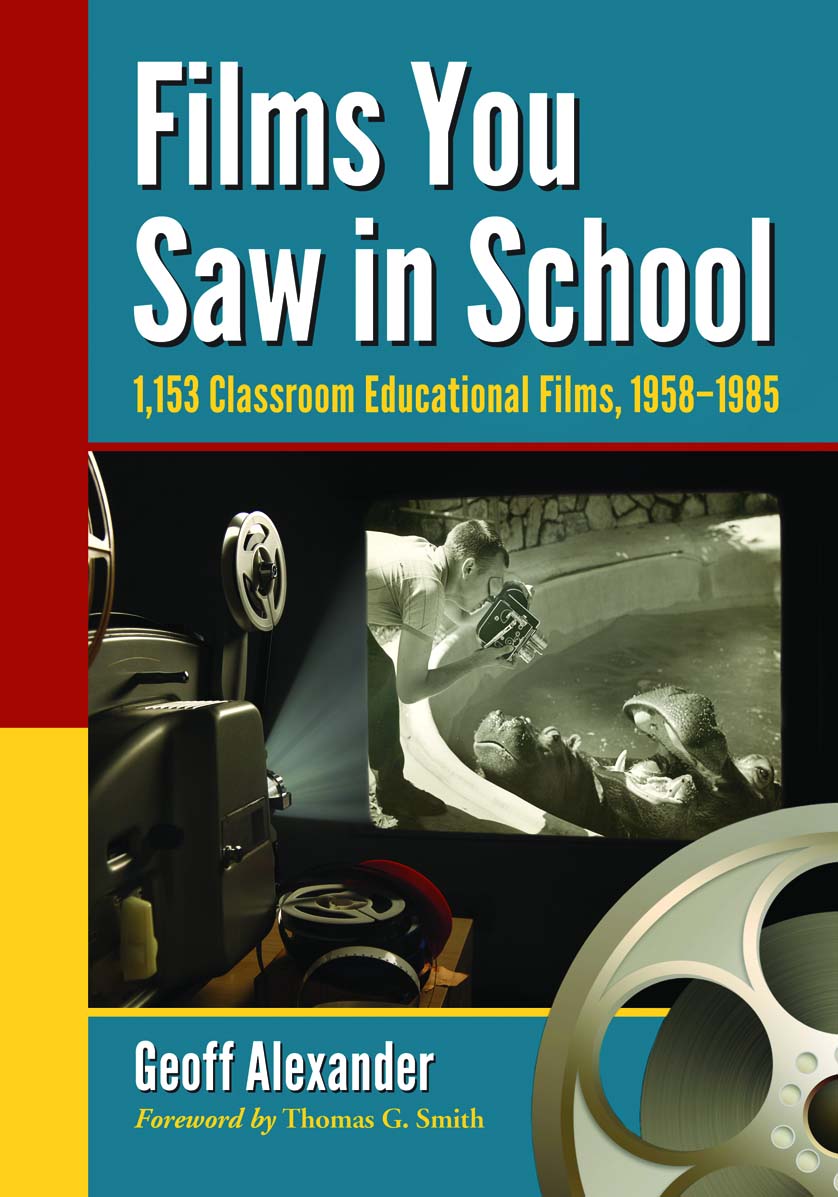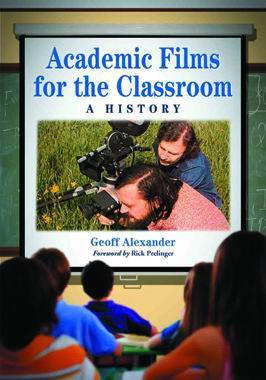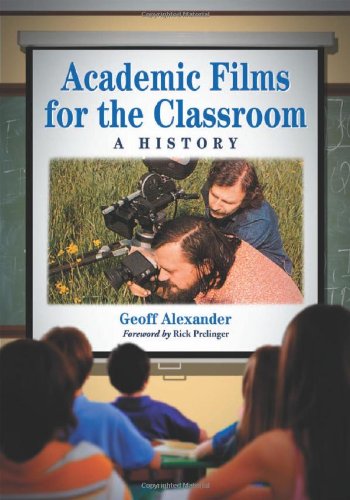|








| |
I've written two
books on 16mm academic classroom films, focusing on Humanities and Science
films. These films were sold to school libraries from the early part of the
twentieth century through approximately 1990, ended by the advent of videotape.
Most of these films were not converted and many eventually ended up in
landfills. These books describe the individuals who made them, the companies
that sold them, and why they're important to save. For more information on the
topic, visit the Academic Film Archive of
America website. Here is a thumbnail description of each book:
|

Published in 2014:
Films You Saw in School: A Critical Review of 1,153 Classroom
Educational Films (1958-1985) in 74 Subject Categories.
Geoff Alexander's new book jumps beyond the historical story of
the companies, filmmakers, laws, and history of the classroom
educational film movement that were discussed in his first book. Here
more than one thousand academic classroom films are classified into 12
major classifications and a number of other sub-genres, an essential
insight into little-known behind the scenes stories that drove the
making of these films, many of which are as relevant today as when they
were made. More than 200 of the films discussed are available for public
viewing on the internet.
This book will have special appeal to educators, home-schoolers, film
researchers and scholars, and cultural historians. Order 'Films You
Saw In School'
here.

Published in 2011: Exploring
a realm of film often dismissed as campy or contrived, this book written
by Academic Film Archive of North America director Geoff Alexander,
Academic Films for the Classroom: a History, traces the history of
classroom educational films from the silent era through the 1980s, when
film finally began to lose ground to video-based and digital media. It
profiles 35 individual academic filmmakers who played a role in bringing
these roughly 110,000 16mm films to classrooms across North America,
paying particular attention to auteur John Barnes and his largely
neglected body of work. Other topics include: the production companies
contributing to the growth and development of the academic film genre;
the complex history of post-Sputnik, federally-funded educational
initiatives which influenced the growth of the academic film genre; and
the denouement of the genre in classrooms and its resurgence on the
Internet. Read Michael Fox's
interview with AFA
director Geoff Alexander about his book
Academic
Films for the Classroom: A History. Order 'Academic Films for the
Classroom: a History'
here. |
| |



|
